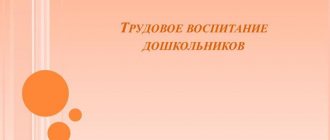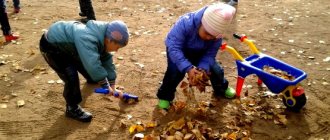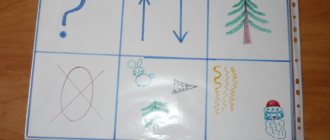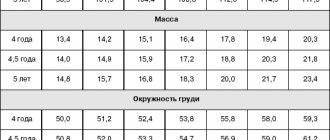Pedagogical activity of the teacher
Pedagogical activity of the teacher.
Pedagogical activity can be characterized as a type of social activity that is directed from older generations to younger generations of the culture and experience accumulated by humanity, creating conditions for their personal development and preparation for fulfilling certain social roles in society.
The personality of a preschool teacher is formed, manifested and changed in the process of his professional pedagogical activity, in which the goal, motives, subject of activity, methods of carrying it out, and the result are identified. A feature of the content of educators’ pedagogical activities is pedagogical monitoring, which is aimed at studying:
- the child’s activity skills;
— interests; preferences; child's inclinations;
— personal characteristics of the child;
— behavioral manifestations of the child;
— features of the child’s interaction with peers;
— features of the child’s interaction with adults.
A comprehensive study led by N.V. Kuzmina showed that pedagogical activity and its structure consist of the following internally interconnected components: constructive, organizational, gnostic, communicative.
The structure of pedagogical activity according to N.V. Kuzmina.
| Components | Contents of components of pedagogical activity |
| Structural component | Includes planning, design, selection of material for educational and educational work, as well as interaction with children and parents. Constructive skills are revealed in the ability to foresee possible difficulties in work and in creating conditions for their elimination. Such skills allow you to plan a child’s activities at all scheduled moments, both for a short and longer period, to draw up a plan, lesson notes, entertainment scenarios, and the ability to select factual material in specific areas of knowledge in accordance with the goals and objectives of learning at each age stage. |
| Organizational component | The teacher is able to organize the process of both the activities of children (collective, group, individual), parents (aimed at enhancing joint efforts in raising children, providing assistance to a kindergarten, group), and their own activities. For a good result, you must be able to charge people (both adults and children) with your energy, captivate, activate them, quickly and flexibly apply your knowledge and experience in solving practical problems when leading various types of activities. |
| Gnostic component | The effectiveness of gnostic activity is associated with knowledge of psychology, understanding of the patterns and characteristics of children's development, and the presence of interest in the spiritual world of the child. This component is aimed at understanding the family microenvironment of the child, parents, analyzing one’s own teaching activities, and the work of colleagues. Those skills that are used by the teacher in the process of this activity provide an opportunity to study the subject, identify the level of development of processes (cognitive, emotional, volitional), states, discover the motives of his behavior, the personal qualities of the child, identify the relationships of pupils in children's society, as well as the degree emotional well-being of each of them. |
| Communication component | This component includes establishing and maintaining relationships with students, parents, administration, and colleagues. It is the attitude of the teacher that determines the success of constructive activities and the emotional well-being of the preschooler in the learning process. |
It is generally accepted that the specificity of the activities of a preschool teacher is that he is obliged to provide children with emotional well-being, create psychological and pedagogical conditions for the development of children’s abilities and inclinations, provide them with a wide choice of different types of activities, and individualize education. Education in preschool age does not imply the mandatory acquisition of certain knowledge in a strictly specified volume, which distinguishes it from education at other age stages of child development. A kindergarten teacher raises and teaches children who have their own age characteristics. The teacher also organizes and manages the elementary work and educational activities of his pupils, and is guided by play, everyday activities, and communication activities. These types of activities, due to the age of the children, require special conditions. There are various ways and means for a teacher to get to know his students. In addition to conversations, special experiments, sociometric methods, children's drawings used for this purpose, a teacher can obtain a lot of valuable information about the inner world of children, their attitude towards others, towards kindergarten by observing the behavior of children in everyday life.
The psychology of trust, so necessary for success in working together with a family to raise children, is determined here not so much by objective circumstances or the merits of the teacher (education, the opinion of the administration and colleagues, etc.), but by emotional factors that sometimes allow parents to intuitively guess sensitivity or coldness, kindness or excessive severity of the teacher. The conditions for successful interaction with parents are that the teacher has an internal readiness to act together with the family and a desire to find an approach to the parents, who, in turn, expect the teacher to show attention, warmth, and love for their child, and it is important to meet these expectations. Without this, it is difficult to count on cooperation with them in education.
Professional and personal requirements for a teacher.
In my opinion, the modern requirements for a preschool teacher are slightly different from their usual, classic version. A teacher working with young children has to use more different techniques and use knowledge in order to interest modern children, instill discipline, responsibility, literacy, and a desire to learn.
I believe that the basic requirements for a preschool teacher should be:
High civic responsibility and social activity;
Love for children, the need and ability to give them your heart;
Genuine intelligence, spiritual culture, desire and ability to work together with others;
High professionalism, innovative style of scientific and pedagogical thinking, readiness to create new values and make creative decisions;
The need for constant self-education and readiness for it;
Physical and psychological health, professional performance.
Based on my experience, I can say that all these requirements for a kindergarten teacher affect the level of education of students. I believe that the requirements for the professionalism and personality of a teacher should be as follows:
| Requirements for the professionalism and personality of the teacher | |
| The teacher must KNOW: | The teacher must BE ABLE TO: |
| Psychology of giftedness, diagnostics and methods for its identification, types, stimulating conditions for its development Age-related features of the manifestation of signs of giftedness Programs (comprehensive and specialized) Regulatory framework on the problem Innovative technologies Qualitative characteristics of the necessary developmental subject-spatial environment of the group Modern scientific and methodological literature on the problem Specifics of methods and techniques for developing abilities Individual characteristics and personal potential of the child Specifics of methods and techniques for developing abilities Individual characteristics and personal potential of the child Child's interests Social and material capabilities of the family, family psychological microclimate Opportunities for child development in a family environment Effective forms and methods of working with parents | Create an emotionally comfortable environment and a favorable emotional and psychological microclimate in the group Timely identify children with signs of early giftedness using observation and diagnostic tools Implement a diagnostic and analytical approach to planning and organizing work with children Create a development environment Apply innovative technologies and techniques Stimulate the development of abilities through various forms of work with children Showcase your personal creativity Select activity motivation that is relevant for children Self-improvement (plan a system of self-education) Interact with all preschool specialists working with a gifted child |
| Build positive interpersonal relationships with your child Develop an educational program for circle work Master problem-based learning methods and questioning techniques Organize optimal forms of work with children Organize work with parents Select relevant and accessible information for parents | |
Thus, it can be noted that a modern teacher today needs special professional training. To do this, you need to seriously work on increasing the teacher’s competence, which will allow him to work according to the standard.
A professional standard is a characteristic of the qualifications that an employee needs to carry out a certain type of professional activity or perform a labor function (Part 2 of Article 195.1 of the Labor Code of the Russian Federation). The professional standard combines all the requirements for teachers at all levels of education, approved by order of the Ministry of Health and Social Development of the Russian Federation dated August 26, 2010 No. 761n (registered with the Ministry of Justice of Russia on October 6, 2010 No. 18638). Professional standards are needed in order to determine the qualifications of an employee and the responsibilities for the corresponding position, and are also necessary when developing educational programs (vocational education (part 7 of article 11 of the Law of December 29, 2012 No. 273-FZ); vocational training (part 8, Article 73 of the Law of December 29, 2012 No. 273-FZ) additional professional education (Part 9 of Article 76 of the Law of December 29, 2012 No. 273-FZ).
Two types of standards are now applied to preschool educational institutions (educators, teachers, specialists):
• Federal State Educational Standard, approved by the Ministry of Education and Science of the Russian Federation;
• Professional standard approved by the Ministry of Labor of the Russian Federation.
Both standards were developed in 2013, but relate to different areas: the Federal State Educational Standard concerns educational institutions in general, and the professional standard refers to personnel policies, certification work, the development of job instructions and other actions relating to specific employees.
Schedule
Daily routine in preschool:
- The teacher's work shift begins when the first child comes to the group. Before accepting children into kindergarten, the teacher must make sure that the child is in perfect order. If there are doubts about his well-being, the teacher can contact the medical center for help or inform the parents that the baby should be taken home.
- After all group members have been received, exercise begins, during which the teacher must motivate the children to take active action.
- After a short warm-up, the children will have breakfast. During meals, the teacher helps the children eat. The little ones need help, so they need to be fed.
- Throughout the day, the teacher monitors compliance with the correct regime.
- Walks are carried out in good weather and the time must comply with the norms. Before the walk begins, the teacher helps those who don’t know how to get dressed and counts the students.
- Upon returning from a walk, as a rule, it is time for lunch and nap.
- The end of the working day is the handing over of the children to their parents. The responsible teacher should communicate with mothers, briefly describing the “working” day of the kids. If the teacher has comments about the child’s behavior, they must be voiced.
Who can get this position
Secondary pedagogical education will enable the applicant to apply for positions: assistant teacher, junior teacher, teacher. Most often, these specialists work in the garden for several years, participate in events, try to write educational programs, and after five years of such activity they can receive a promotion to senior teacher. In some commercial preschool educational institutions this period is slightly reduced.
In accordance with the law, people who have a teacher’s diploma and have completed a professional retraining program have the right to work as a senior educator (methodologist).
How to build a career
The teaching profession does not have any promising career path. In principle, you can grow to become the head of a kindergarten, but for this you must have a university diploma. If you study additionally, the option of a career as an official in the field of education will be available.
You can study with children at home privately in your free time or lead small groups in one or another area of early child development (for example, according to the Maria Montessori method). The most promising, but difficult option is to open your own private kindergarten.
Parent meetings
The first thing you should pay attention to is that the job responsibilities of the teacher include holding parent-teacher meetings and, of course, conversations with moms and dads. Everyone knows about this point. Especially when the time is approaching the holidays and it is necessary to decide how this event will be celebrated. And, of course, if the kindergarten needs to raise money.
However, the kindergarten teacher must hold parent-teacher conferences on a timely and regular basis. It is very important to communicate the successes and failures, as well as the progress of each child. After this, it is sometimes necessary to give some recommendations on activities with the baby at home, so to speak, “homework” to the parents.
In practice, this happens extremely rarely, approximately 2-3 times a year. Although it is best to hold parent-teacher conferences once every month or two. This helps track the child’s progress and his timely preparation for school.
Senior group. Senior preschool age. Children 5-6 years old
Experience. Consultation for teachers “Introducing older preschoolers to the sights of their native land”
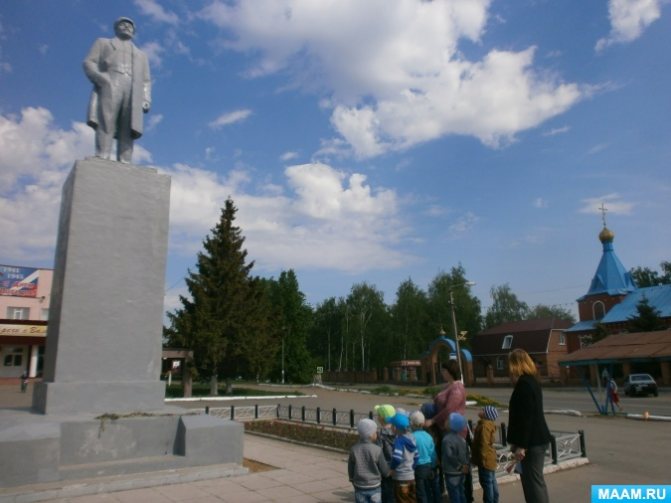
r.p. Cherdakly Abstract This article is devoted to the issues of patriotic
education of senior preschool children...
Consultation for educators “Teaching storytelling in the older group” “Teaching storytelling in older age groups”
We are all familiar with the problem of developing children's coherent speech. And, teaching a child to tell a story means forming his coherent speech. This task is integral to the general task of speech development in preschool children...
Pros of the profession
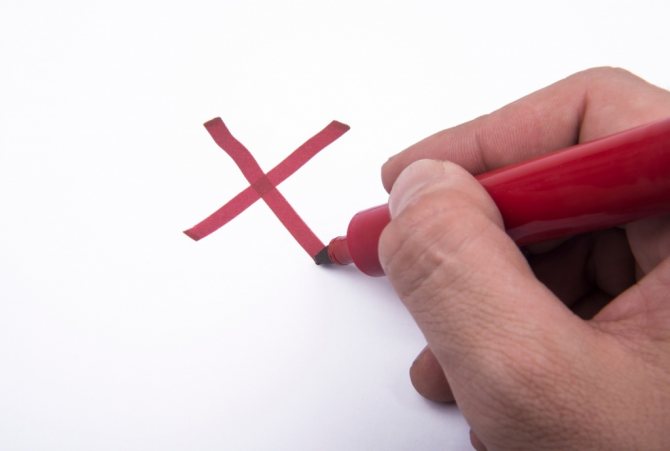
In addition to the most important advantage - immersion in the world of childhood - the profession of a senior teacher has many other advantages.
- It has status and prestige; the manager has something to respect himself for.
- Assumes a stable salary.
- Gives you the opportunity to control your child in a preschool educational institution.
- Most kindergartens provide free food to staff.
- All benefits become available to employees of government agencies.
- The profession of a senior educator is in demand in the labor market.
- A specialist in the field of pedagogy has the opportunity to retire early (after 25 years of experience).
- A senior teacher is an interesting position that does not involve routine and monotony.
- Constant self-improvement and self-education is possible due to the regular introduction of innovations.
- Supervising less experienced employees contributes to one’s own discipline and desire for knowledge.
Daytime nap
Sleeping in kindergarten is a separate issue. Many parents worry whether the rules of recreation in the preschool that their child attends are followed.
It should be noted that parents have the right to see in what conditions the child studies and rests. If you wish, you can enter the bedroom and other rooms.
Children with sensitive sleep, as well as those who take longer to fall asleep, are usually prepared for bed first. These babies are the last to be woken up. If there are children of different ages , then it is customary to raise older students earlier.
During daytime sleep, one of the staff must be present in the bedroom. You can't leave children alone.
